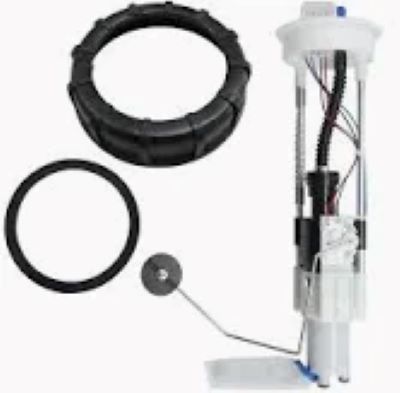Driving with a noisy fuel pump can hardly be safe to do, because the noise really does come from inside the fuel delivery system when unusual sounds occur. A working fuel pump should be quiet, but when it begins producing those loud whining or buzzing noises, that's a sure signal that the pump is stressed, clogged, or damaged in some way. As the pump struggles to supply consistent fuel pressure, this noise could be from low fuel levels, internal wear, or a clogged fuel filter.
Whenever the fuel pump can't maintain the pressure, it directly negates your engine's performance and might even affect fuel efficiency, acceleration, and even emissions. More often than not, a loud noisy fuel pump with these problems will not produce the requisite 30-60 psi necessary for most modern engines to burn efficiently. Besides, driving on low fuel pressure may cause misfires, hesitation, and stalling of the engine, which can be disastrous when trying to accelerate uphill or under load. For example, low fuel would allow the chances of overheating the pump because it depends on fuel inside the tank for cooling. Continuously running low may decrease the lifespan by 20% of the pump and can leave it open to a sudden failure.
Overheating of the fuel pump may also be due to clogging where the pump has to run harder than intended. Automotive repair surveys indicate that almost a quarter of noisy fuel pump complaints can be directly attributed to clogged filters. That stress speeds up wear and can lead to the possibility of pump failure while driving. Worst case, complete pump failure could strand drivers, as the vehicle cannot operate without a functioning fuel pump to deliver fuel to the engine.

Other risks associated with a noisy fuel pump include electrical faults. Most fuel pumps work because of proper grounding and tight wiring. When poor grounding or loose wiring occurs, fuel delivery often becomes intermittent, causing the pump to labor and become noisy. Electrical failures account for nearly 10% of most fuel pump failures, leaving the driver in an unpredictable position regarding fuel flow. A compromised fuel system is dangerous, especially under high-speed conditions wherein a sudden loss of power may create hazardous situations.
As many mechanics put it, "a noisy pump is a warning sign," rather than a condition that should be ignored. In many cases, the early replacement of a dying fuel pump can fend off significantly much more expensive engine repairs, which may reach $1,000 or more when damaged by surging fuel pressure. Regular maintenance to the fuel system includes not only periodic changing of the fuel filter at 20,000-30,000 miles, greatly relieving stress on the pump, but also enhancing the long-term reliability of it. By the time drivers notice unusual pump noise, it is essential to have the problem fixed as soon as possible for maximum safety while limiting possible issues. For more information on fuel pump care and replacement options, visit Fuel Pump.